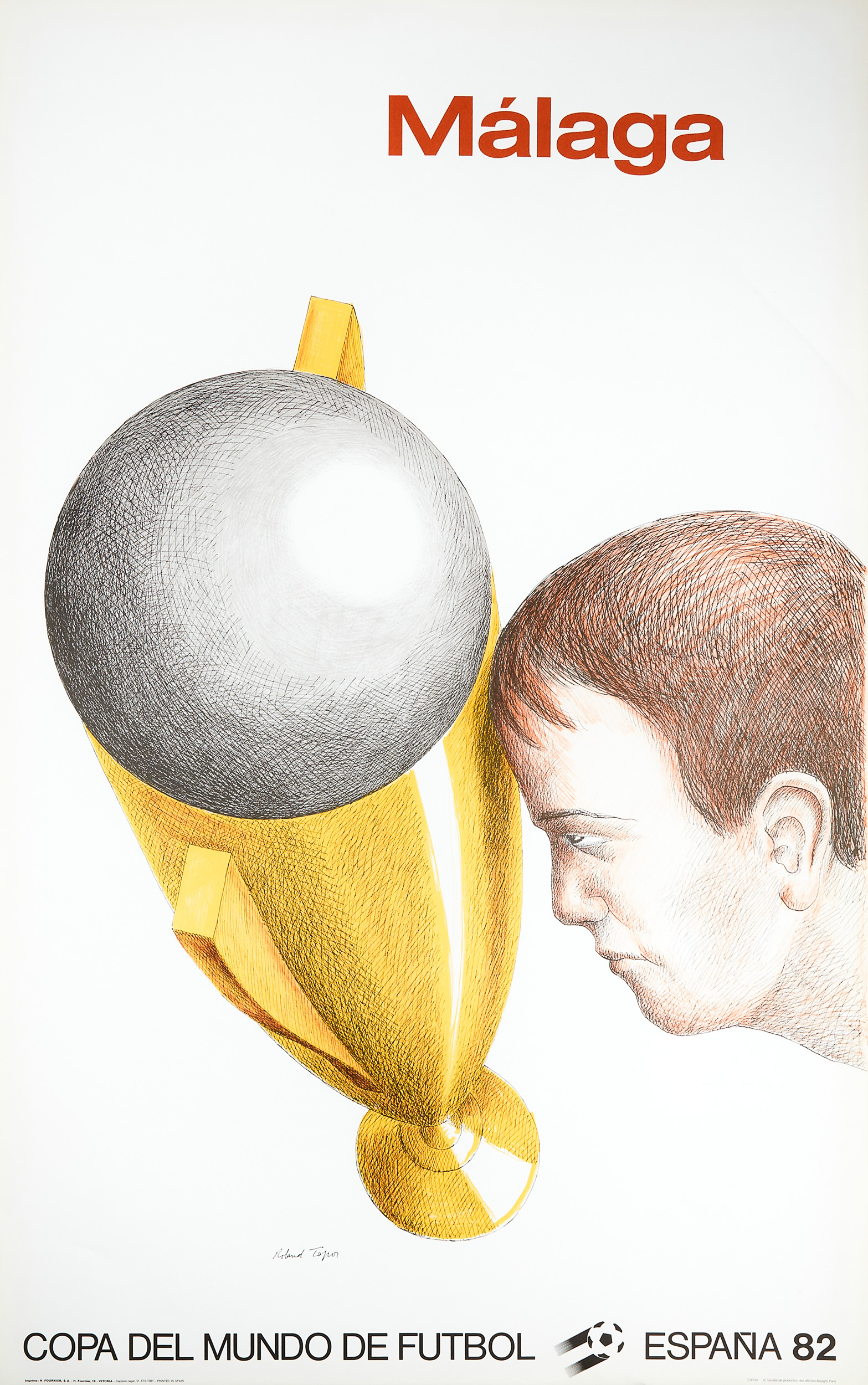Malaga
Introduction Located in the picturesque Andalusian city of Málaga, the football club CF Málaga has a rich history that reflects the passion and pride of its local community. Founded in 1904, Málaga has evolved from a small club into a prominent member of Spanish football, boasting a strong identity that resonates with its supporters. The […]
2011-12 Malaga Home Shirt - 7/10 - (S)
116.99£ - ca: €138
2001-02 Malaga Home Shirt - 8/10 - (XL)
106.99£ - ca: €126
1998-99 Malaga Home Shirt - 6/10 - (XXL)
106.99£ - ca: €126
2001-02 Malaga Home Shirt - 8/10 - (S)
106.99£ - ca: €126
2001-02 Malaga Home Shirt - 8/10 - (M)
106.99£ - ca: €126
2024-25 Malaga Away Shirt (KIDS)
77.99£ - ca: €92
2024-25 Malaga Away Shirt
76.99£ - ca: €91
2024-25 Malaga Third Shirt (KIDS)
70.99£ - ca: €84
2024-25 Malaga Home Shirt (KIDS)
70.99£ - ca: €84
2019-20 Malaga Home Shirt - 6/10 - (S)
70.99£ - ca: €84
2007-09 Malaga Home Shirt - 6/10 - (XXL)
70.99£ - ca: €84
2018-19 Malaga Away Shirt - 9/10 - (S)
70.99£ - ca: €84
2007-09 Malaga Home Shirt - 6/10 - (L)
70.99£ - ca: €84
1998-99 Malaga 'Campeon De Liga' Home Shirt - 5/10 - (L)
69.99£ - ca: €83
2024-25 Malaga Third Shirt
64.99£ - ca: €77
2003-04 Malaga Home Shirt - 5/10 - (M)
59.99£ - ca: €71
2024-25 Malaga Hummel Pre-Match Shirt
56.99£ - ca: €67
2014-15 Malaga Home Shirt - 9/10 - (XL.Boys)
41.99£ - ca: €50
2012-13 Nike Template Shirt (Malaga) - 6/10 - (S)
18.99£ - ca: €22
1982 Spain World Cup Original Poster (Malaga)
16.99£ - ca: €20
2022-23 Malaga Away Shorts (XL)
9.99£ - ca: €12
2022-23 Malaga Home Shorts
6.99£ - ca: €8
2022-23 Malaga Third Socks
4.99£ - ca: €6
Warning: A non-numeric value encountered in /var/www/netskribent.dk/retro-football-shirt.com/wp-content/themes/boot5/single-clubs.php on line 148
Introduction
Located in the picturesque Andalusian city of Málaga, the football club CF Málaga has a rich history that reflects the passion and pride of its local community. Founded in 1904, Málaga has evolved from a small club into a prominent member of Spanish football, boasting a strong identity that resonates with its supporters. The club’s colors, blue and white, symbolize its coastal heritage, and its home stadium, La Rosaleda, with a capacity of over 30,000, serves as a fortress for the passionate Málaga fans.
Club History
Málaga CF was established in 1904 under the name Málaga FC, making it one of the oldest football clubs in Spain. The club experienced various name changes and restructures, culminating in the incorporation of the current name in 1994 after a merger with another local club. Throughout its early years, Málaga competed in regional leagues before finally joining the top tier of Spanish football, La Liga, in the 1940s. The club’s history is marked by ups and downs, with periods of success interspersed with challenges, including relegation issues and financial struggles.
In the late 20th century, Málaga began to gain recognition, culminating in their historic promotion to La Liga in 1999. This marked the beginning of a new era, as the club soon became known for its competitive spirit and ability to attract notable players and coaches. The club’s journey was also marked by a significant ownership change in the early 2000s when a Qatari investor bought the team, leading to increased financial strength and ambition.
Achievements
Málaga CF has a storied list of achievements that underscore their competitiveness in both domestic and international football. The highlight of the club’s history came in the 2011-12 season when they reached the UEFA Champions League quarter-finals, marking their first appearance in this prestigious competition. The journey included a famous match against FC Porto, where they triumphed 2-0, drawing attention across Europe.
Domestically, Málaga has celebrated significant milestones, including winning their first major trophy, the Copa del Rey, in 1939. More recently, the club finished fourth in La Liga in 2012, securing a spot in the Champions League for the second consecutive season. Other notable achievements include winning the Segunda División title on multiple occasions, most notably in 1999 and 2008, which paved their way back to the top flight of Spanish football.
Significant Players and Matches
The identity of Málaga CF is deeply intertwined with its standout players throughout history. Notable figures include the talented striker Sandro Ramírez, who played a crucial role in the club’s resurgence in La Liga, and talent like Isco, who emerged as a superstar at the club before moving on to global prominence with Real Madrid. Another influential player was Diego Buonanotte, whose skills helped steer the team to success during his tenure.
Several landmark matches have defined the club’s reputation. The iconic 2012 UEFA Champions League match against APOEL is particularly memorable, where Málaga secured a dramatic 1-0 victory, showcasing their resilience and talent on an international stage. The club’s ability to compete with Europe’s elite clubs has cemented its place in football history and inspired a new generation of fans.
Cultural Impact
Málaga CF is more than just a football club; it is a vital part of the local culture and community. The club serves as a unifying force, bringing together fans from diverse backgrounds and fostering a strong sense of belonging. The fervent atmosphere at La Rosaleda is a testament to the passionate support the team enjoys, with fans known for their unwavering loyalty, regardless of the club’s position in the league.
Moreover, the club has contributed to the city’s identity, with traditions and celebrations surrounding match days permeating local life. The sense of pride associated with the club has also played a role in promoting tourism and cultural events in Málaga, enhancing the city’s profile as a vibrant destination for sports enthusiasts.
Conclusion
CF Málaga’s journey through the annals of football history showcases the evolution of an ambitious club with deep roots in its community. From its modest beginnings to its contemporary success on both domestic and international fields, Málaga has proved that passion for the game can drive a club to remarkable heights. As it continues to navigate the challenges of modern football, Málaga CF remains a symbol of local pride and a testament to the enduring love of the sport in Andalucía and beyond.






















